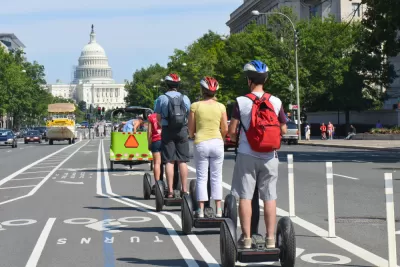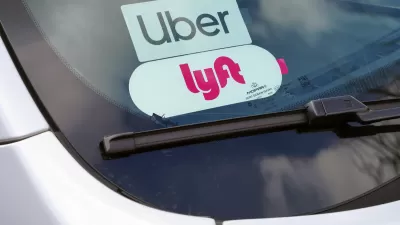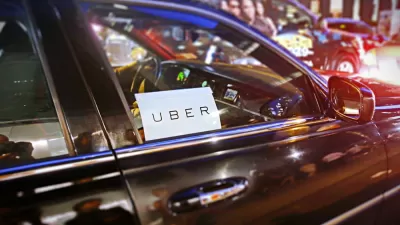Segways were invented 17 years ago, but the technology feels as if it's been dead for a while. So why are scooters continuing to attract cities and investors?

Brad Stone estimates the electric scooter share business with 10,000 scooters on the roads is making about $100,0000 in revenue every day, with plenty of room to keep growing. While much has been written about dockless scooters clogging up sidewalks, investors seem to think this transit mode has legs. "Meanwhile, both Uber Technologies Inc. and Lyft Inc. have applied to introduce e-scooters in San Francisco, where the local government is set to authorize a pilot program after temporarily clearing the city of scooters last month," Stone reports.
Stone sees the price point and on-demand model as the key reason this transit mode survives while vehicles like Segways failed in the past. A ride on a Bird or LIme e-scooter costs around $2 for a 6-minute trip, so there's not much to keep curious consumers from trying them out.
FULL STORY: Here’s How Scooter Startups Solved the Segway Problem

Planetizen Federal Action Tracker
A weekly monitor of how Trump’s orders and actions are impacting planners and planning in America.

Maui's Vacation Rental Debate Turns Ugly
Verbal attacks, misinformation campaigns and fistfights plague a high-stakes debate to convert thousands of vacation rentals into long-term housing.

San Francisco Suspends Traffic Calming Amidst Record Deaths
Citing “a challenging fiscal landscape,” the city will cease the program on the heels of 42 traffic deaths, including 24 pedestrians.

Defunct Pittsburgh Power Plant to Become Residential Tower
A decommissioned steam heat plant will be redeveloped into almost 100 affordable housing units.

Trump Prompts Restructuring of Transportation Research Board in “Unprecedented Overreach”
The TRB has eliminated more than half of its committees including those focused on climate, equity, and cities.

Amtrak Rolls Out New Orleans to Alabama “Mardi Gras” Train
The new service will operate morning and evening departures between Mobile and New Orleans.
Urban Design for Planners 1: Software Tools
This six-course series explores essential urban design concepts using open source software and equips planners with the tools they need to participate fully in the urban design process.
Planning for Universal Design
Learn the tools for implementing Universal Design in planning regulations.
Heyer Gruel & Associates PA
JM Goldson LLC
Custer County Colorado
City of Camden Redevelopment Agency
City of Astoria
Transportation Research & Education Center (TREC) at Portland State University
Jefferson Parish Government
Camden Redevelopment Agency
City of Claremont





























